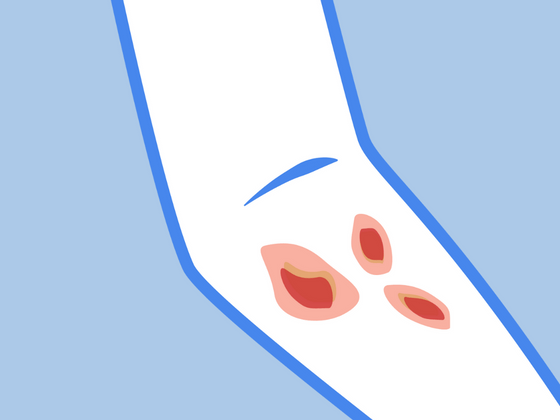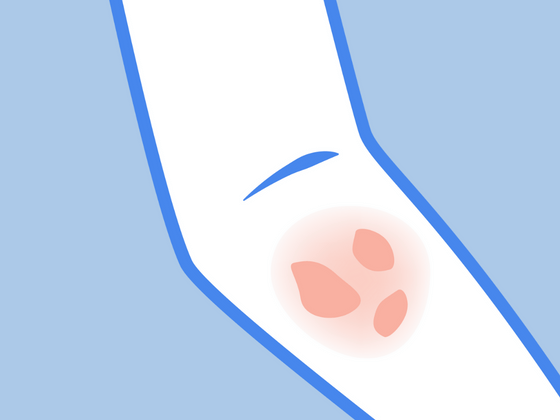Eyelid eczema, also known as atopic dermatitis affecting the eyelids, is a common and distressing condition that can cause significant discomfort. Characterized by symptoms such as itching, redness, and inflammation, eyelid eczema presents unique challenges due to the delicate nature of the skin around the eyes. So, how can you effectively manage and treat this condition using natural remedies?
In this blog, we will explore the benefits of coconut oil as a remedy for eyelid eczema, covering:
-
The advantages of using coconut oil for eczema relief
-
How coconut oil's properties can alleviate eczema symptoms
-
Tips on how to incorporate coconut oil into your skincare routine effectively
Read on to discover how coconut oil can help soothe your eyelid eczema, improve your skin's health, and provide relief from the discomfort of this challenging condition.
Understanding Eyelid Eczema
Eyelid eczema, part of a broader category of atopic eczema, results from a combination of genetic and environmental factors. Common eczema symptoms include dry skin, itching, and inflammation. In severe cases, eczema can cause skin cracks and lead to bacterial infections, such as staphylococcus aureus colonization. The condition can be exacerbated by allergens and irritants, including harsh chemicals found in skincare products.
The Role of Coconut Oil
Coconut oil, especially virgin and cold-pressed varieties, has become a favored natural remedy for various skin conditions, including eczema. Rich in fatty acids like lauric acid, coconut oil offers several benefits that can help manage eyelid eczema:
Anti-Inflammatory Properties
Virgin coconut oil has been shown to have potent anti-inflammatory effects. Studies indicate that lauric acid and other components in coconut oil can reduce inflammation and soothe irritated skin. This is crucial for managing eczema flares and alleviating the redness and swelling often associated with the condition.
Moisturizing and Skin Hydration
One of the main challenges of eczema is maintaining adequate moisture levels in the skin. Coconut oil provides excellent skin hydration by forming a barrier on the skin’s surface, preventing water loss, and adding extra moisture. This helps in restoring the skin barrier, which is often compromised in people with eczema. The oil's moisturizing properties can also help reduce dryness and improve overall skin texture.
Antibacterial and Antimicrobial Properties
Coconut oil has natural antibacterial and antimicrobial properties, which can be beneficial for preventing infections that may arise from eczema. Its ability to inhibit the growth of bacteria, such as staphylococcus aureus, helps in reducing the risk of secondary infections in affected areas.
Skin Protective Properties
Applying coconut oil to the skin can enhance its protective barrier. The oil's ability to lock in moisture and shield the skin from external irritants is particularly useful for people with sensitive skin or those prone to allergic reactions. This protective layer helps to prevent further irritation and reduce the frequency of eczema flares.
How to Use Coconut Oil for Eyelid Eczema
To effectively use coconut oil for treating eczema, consider the following tips:
Choose the Right Type
Opt for virgin or cold-pressed coconut oil. These types are less processed and retain more of the beneficial fatty acids and nutrients. Avoid refined coconut oil, which may contain added chemicals and lack the same skin benefits.
Patch Test First
Before applying coconut oil to your eyelids, conduct a patch test on a small area of skin to ensure you do not have an allergic reaction. This is crucial as some individuals may experience sensitivity or irritation.
Apply Gently
Using clean fingers or a cotton pad, gently apply a thin layer of coconut oil to the affected areas of your eyelids. Avoid applying too much oil, as excess oil can potentially irritate the skin or clog pores.
Combine with Other Natural Remedies
For added benefits, you can combine coconut oil with other soothing natural remedies. Aloe vera gel, known for its skin protective and anti-inflammatory properties, can be used alongside coconut oil. Aloe vera helps in further reducing inflammation and providing extra moisture.
Integrate into Your Routine
In addition to applying coconut oil directly to the affected areas, using a gentle, nourishing soap can further benefit those with eyelid eczema. Consider incorporating our Coconut and Sunflower Oil Soap Bar into your skincare routine. This soap combines the moisturizing and anti-inflammatory properties of coconut oil with the skin-protective benefits of sunflower oil. Designed for sensitive skin, the soap bar avoids harsh chemicals that could irritate eczema-prone areas. It also helps cleanse the skin without stripping away natural oils, which is crucial for maintaining hydration and reducing dryness.
For those navigating the challenges of TSW, pairing coconut oil care with deeper nourishment can make a noticeable difference. That’s where our Soothe My TSW Kit comes in — a complete set designed to calm inflammation and support healing with gentle, natural ingredients.
For an extra boost of gentle care, explore Ora's Amazing Herbal Baby Salve for Sensitive Skin, a fragrance-free balm designed to soothe diaper rash, calm baby eczema, and moisturize delicate folds without irritation. For adults with sensitive or eczema-prone skin, Ora's Amazing Herbal Makeup Remover Balm with Calendula offers a nourishing cleanse that melts away dirt and makeup while supporting skin healing with herbal infusions. Both are fragrance-free, plant-powered, and crafted to keep even the most sensitive skin calm, soft, and healthy.
Additional Tips for Managing Eyelid Eczema
In addition to using coconut oil, consider the following strategies to enhance your eczema treatment plan:
Avoid Harsh Chemicals
Use gentle, hypoallergenic skincare products to avoid exacerbating eczema symptoms. Look for products free from harsh chemicals and fragrances that may irritate sensitive skin.
Maintain Skin Hydration
Regularly add moisture to your skin to combat dryness. This includes drinking plenty of water and using moisturizing products that support your skin barrier.
Consult a Healthcare Professional
For persistent or severe eczema, seek advice from a healthcare provider. They may recommend additional treatments or adjustments to your skincare routine.
Soothe Your Eyelid Eczema with Coconut Oil
Follow these tips to effectively use coconut oil for treating eczema, enhance skin hydration, and reduce inflammation around your eyes.








